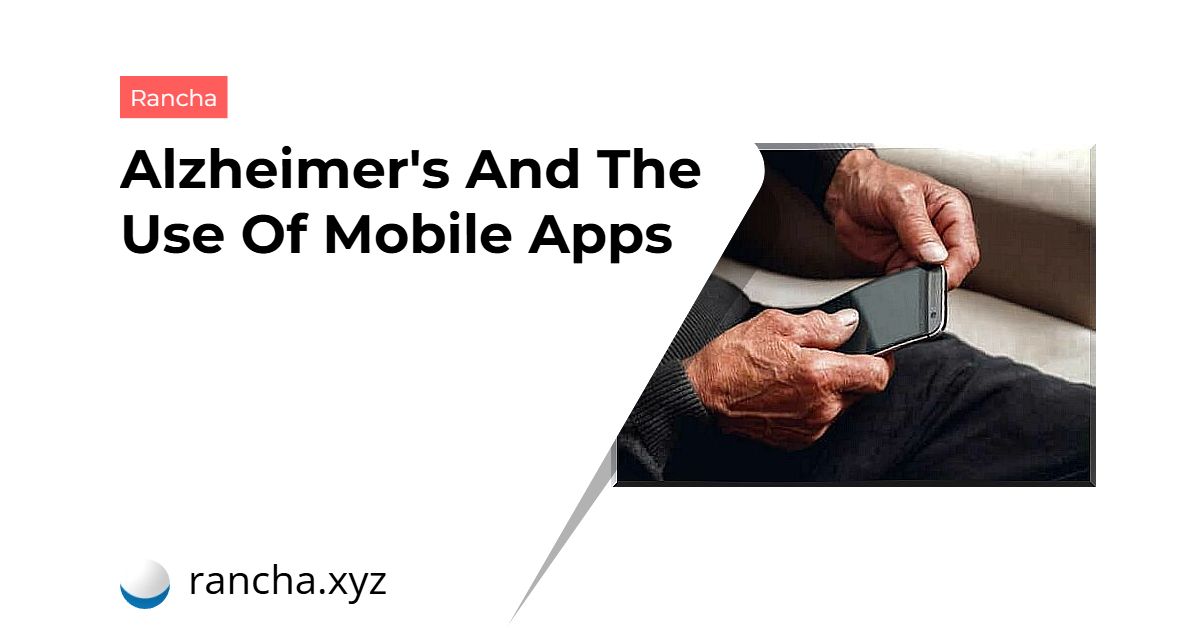Mobile apps have become an everyday element that we use (or try to use) to improve our quality of life. As the use of these applications has this potential quality, they could also be used to perform interventions in dementias, specifically in the case of Alzheimer’s.
Alzheimer’s is a neurodegenerative disease characterized by the presence of cognitive and behavioral impairment of insidious onset and progressive course. Its onset usually occurs in adulthood, mainly in old age (Valls-Pedret, Molinuevo and Rami, 2010).
The progression of the disease has its correlate in the loss of autonomy and independence of people who suffer from it. This, consequently, usually causes a decrease in the quality of life, both for the patient and for the family.
As there is no 100% effective treatment for this type of dementia, it is more appropriate to start a combined treatment of pharmacological therapy and non-pharmacological therapy. ICTs are included in non-pharmacological therapy.
We can define ICTs as resources, tools and programs that are used to process, manage and share information through various technological supports (computers, cell phones, tablets…) (Rodríguez, S., 2016).
This set of resources, in which we highlight mobile applications, is an excellent complement for professionals who work with people with Alzheimer’s disease, as they support and help in the development, monitoring and fulfillment of the goals outlined in the treatments.

Definition and types of mobile apps
A mobile app is a program or software that can be downloaded and accessed directly from your smartphone or some other mobile device (Gosalvez, D. and Rodero, D., 2012). According to Delia, Galdamez, Thomas and Pesado (2013), there are three types:
web applications
Designed to run in the mobile device browser. These apps are developed using the same technology used to create websites.
The best thing is that they comply with certain properties, for example, that the user can use them with different clients or browsers.
Native apps
They are designed to run on a specific platform. That is, the type of device, the operating system to be used and its version must be considered.
hybrid apps
This type is a combination of the best of the two previous application types. Therefore, they would be the ideal option, as they adapt to any mobile device.
In what areas can we use mobile apps?
According to Monteagudo (2012), we can use them in different areas:
- Investigation.
- Diagnosis.
- Treatment.
- Prevention.
- Social and health care.
- Improved quality of life for patients and caregivers.

Usefulness of apps in Alzheimer’s disease
- Telediagnosis: identification of anomalies, symptoms… Expanding the possible coverage of needs 24 hours a day, 365 days a year. The use of mobile apps for remote diagnosis can also be a great ally for early detection of Alzheimer’s disease.
- Telemonitoring: through remote user monitoring. This improves the health care provided by professionals who carry out the treatments. Telemonitoring would be complemented with remote diagnosis.
- Help for the caregiver: through the many mobile apps available today, the primary caregiver, who takes on more responsibilities, can obtain information of interest to them, locate the patient or even find a peer group to support themselves (support groups).
- Monitoring of basic and instrumental activities of daily life. They allow knowing the patient’s evolution and evaluating the results obtained in the cognitive functions examined.
- Management of patient evolution in the different proposed tasks.
- Independence and autonomy for users. There are several applications on the market that allow you to know the location of patients, which can guide the user or even help to recognize people in the closest environment.
In short, the use of mobile apps in the social and health area, specifically in Alzheimer’s disease, can have beneficial effects for patients and their families. Furthermore, it can facilitate the initiation of the therapeutic process.
 rancha.xyz Be free to choose their own route to self-knowledge, health and balance of body and soul.
rancha.xyz Be free to choose their own route to self-knowledge, health and balance of body and soul.




